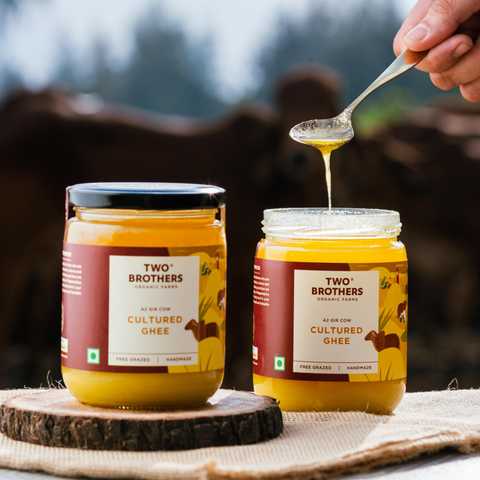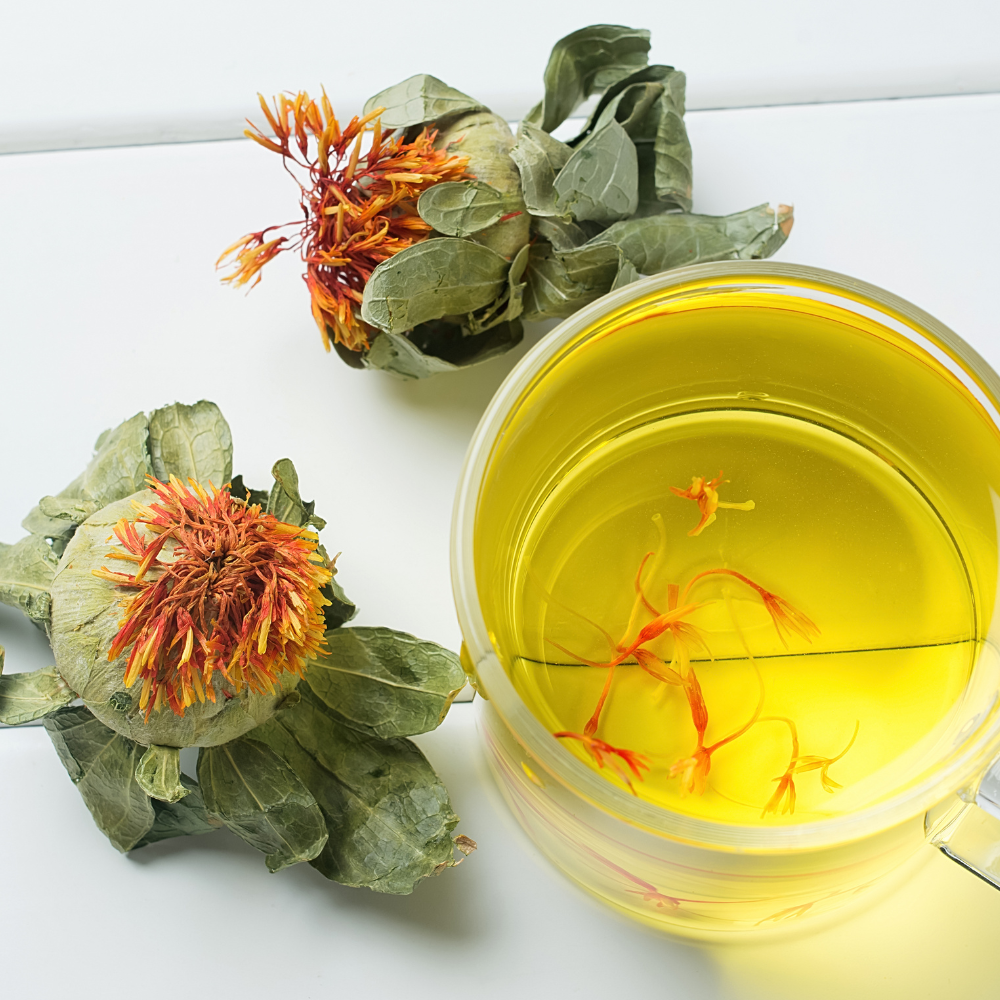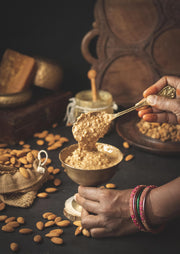A healthy life depends on selecting the proper cooking oil. Both ghee and olive oil have advantages and applications of their own in the argument. You can make an informed decision if you are aware of their distinctions, nutritional values, and effects on health.
Comprehending Olive Oil and Ghee
Clarified butter, or ghee, is a common ingredient in Indian cuisine. To make it, butter is simmered until the milk solids are removed. On the other hand, olive oil, a mainstay of Mediterranean cooking, is made from olives. The distinct qualities of these oils add to their overall health advantages.

Comparing Nutrition
Ghee
-
Rich in Saturated Fat: Saturated fats, like those found in ghee, have the potential to raise cholesterol when ingested in excess. But it also contains easily digested short-chain fatty acids.
-
Rich in Vitamins: The fat-soluble vitamins A, D, E, and K are all present in good amounts in ghee. These vitamins are necessary for many body processes, such as immune system function, bone health, and vision.
-
No Lactose or Casein: Ghee is suitable for people with dairy sensitivity because it is free of lactose and casein due to its clarified consistency.
Olive Oil
-
High in Monounsaturated Fat: Monounsaturated fats, which are known to lower the risk of heart disease and lower harmful cholesterol levels, are abundant in olive oil.
-
Antioxidant-Rich: Strong antioxidants like polyphenols found in olive oil help fend off oxidative damage and inflammation.
-
Omega-3 and vitamins: Together with omega-3 fatty acids and vitamins E and K, it also contains these nutrients, which are good for the heart and brain.
Advantages for Health
Ghee
-
Enhances Digestion: Ghee promotes the release of gastric acids, which facilitates the breakdown and assimilation of nutrients. Additionally, it supports the growth of good bacteria, which improves intestinal health.
-
Boosts Immunity: Ghee's butyric acid contains anti-inflammatory and immune-strengthening qualities.
-
Energy supply: Ghee is a fantastic choice for high-energy activities because of its medium-chain triglycerides, which offer a rapid supply of energy.
Olive Oil
-
Heart Health: The antioxidants and monounsaturated fats in olive oil lower the risk of heart disease. Frequent consumption can enhance cholesterol levels and reduce blood pressure.
-
Anti-Inflammatory: Olive oil's antioxidants have potent anti-inflammatory properties that lower the chance of developing chronic illnesses like cancer and arthritis.
-
Control of Weight : Olive oil reduces hunger and encourages satiety, which can help with weight management.
Cooking and Using
Ghee
-
Elevated Smoke Index: Due to its high smoke point (about 485°F), ghee can be used in high-heat culinary techniques including sautéing and frying. At high temperatures, it doesn't decompose into dangerous chemicals.
-
Flavorful: Rich, nutty flavor is added to food by flavorful ghee, which improves the flavor of both savory and sweet meals.
Olive Oil
-
Moderate Smoke Point: Because extra virgin olive oil has a lower smoke point (around 375°F), it is perfect for cooking at low to medium heat. It works well as a drizzle over salads, as a bread dip, or in dressings.
-
Versatile: The mellow, fruity flavor of olive oil goes well with grilled meats and vegetables as well as pasta.
Selecting the Ideal Oil for You
Think About Your Health Objectives
-
Because olive oil contains antioxidants and monounsaturated fats, it may be a better option if your main concerns are heart health and lowering inflammation.
-
Because of its butyric acid and medium-chain triglycerides, ghee can help with improved digestion and a rapid energy boost.
Cooking Requirements
-
Ghee is perfect for cooking at high temperatures because of its stability.
-
Olive oil is excellent for adding flavor and nutrients to cold meals.
Dietary Preferences
-
Ghee doesn't contain casein or lactose, so people with dairy allergies or intolerances can safely eat it.
-
Olive oil is a good plant-based choice that fits well with vegan and vegetarian diets.
Conclusion
Both olive oil and ghee have important health advantages and belong in a diet that is well-balanced. Your decision should be based on your food preferences, cooking techniques, and health objectives. Including both types of oils in your diet will help you live a longer, healthier life by offering a range of nutrients and health advantages. Make an informed decision and relish the distinct tastes and health benefits associated with each oil.

















